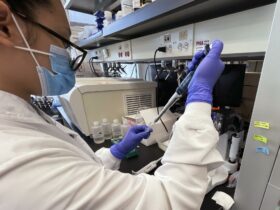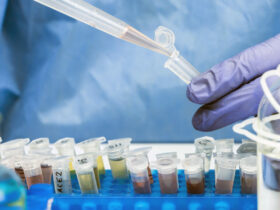Pregnancy Nutrition: How to Eat for Optimal Health

Pregnancy is a time of great joy and anticipation for many women, but it is also a time when proper nutrition becomes even more crucial. Eating a well-balanced diet during pregnancy is essential not only for the health of the mother, but also for the growth and development of the baby. Here are some tips on how to eat for optimal health during pregnancy.
1. Eat a variety of foods: It is important to include a wide range of foods in your diet to ensure you are getting all the nutrients your body needs. Aim to include fruits, vegetables, whole grains, lean proteins, and dairy products in your meals. This will help you get a good mix of vitamins, minerals, and other essential nutrients.
2. Stay hydrated: Drinking plenty of water is important for both mother and baby during pregnancy. Water helps to carry nutrients to the baby and aids in digestion. Aim to drink at least 8-10 glasses of water per day, and more if you are exercising or if it is hot outside.
3. Get enough protein: Protein is essential for the growth and development of the baby, as well as for the mother’s own health. Try to include sources of lean protein in your diet such as lean meats, poultry, fish, eggs, beans, and nuts.
4. Take prenatal vitamins: Even if you are eating a healthy diet, it can be difficult to get all the nutrients you need during pregnancy. Taking a prenatal vitamin can help fill in any gaps in your diet and ensure you are getting all the necessary nutrients for a healthy pregnancy.
5. Limit processed foods and sugar: While it is important to indulge in cravings every now and then, it is best to limit processed foods and sugary snacks during pregnancy. These foods can be high in empty calories and low in nutrients, which can be detrimental to both mother and baby.
6. Listen to your body: Pregnancy can bring on a whole host of cravings and aversions to certain foods. Listen to your body and eat what feels right for you. If you are experiencing morning sickness or food aversions, try to find alternative foods that are still nutrient-dense and easy on your stomach.
7. Consult with a healthcare provider: Every woman’s nutritional needs during pregnancy are different, so it is important to consult with a healthcare provider to determine the best diet plan for you. They can provide personalized recommendations based on your individual needs and help monitor your health throughout your pregnancy.
In conclusion, eating a well-balanced diet during pregnancy is essential for the health and well-being of both the mother and the baby. By following these tips and listening to your body, you can ensure you are getting all the necessary nutrients for a healthy pregnancy. Remember, the choices you make now can have a lasting impact on your child’s health, so prioritize your nutrition during this special time.












Leave a Reply